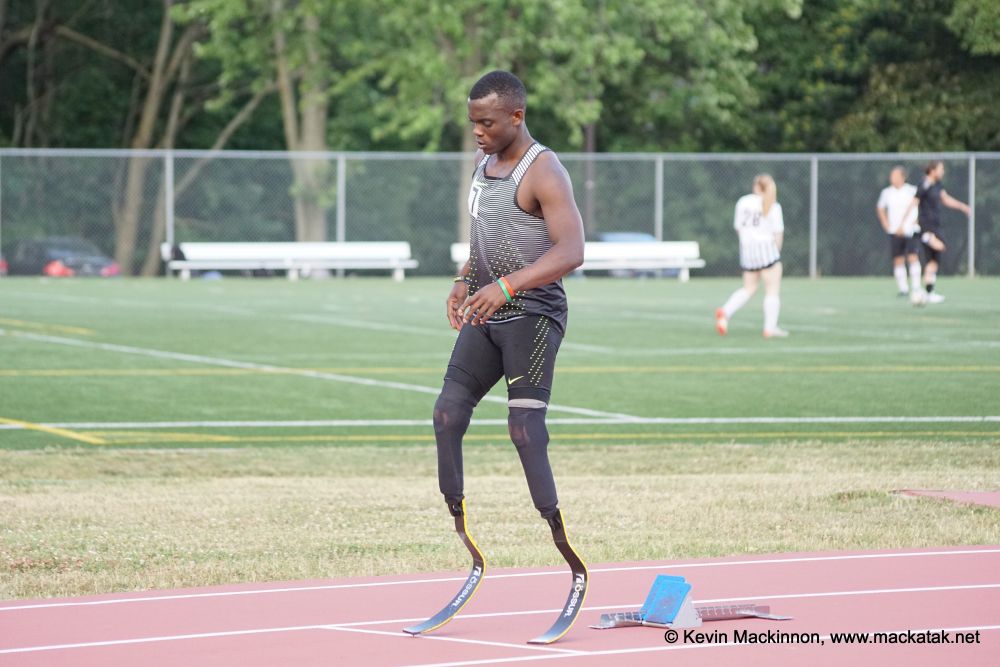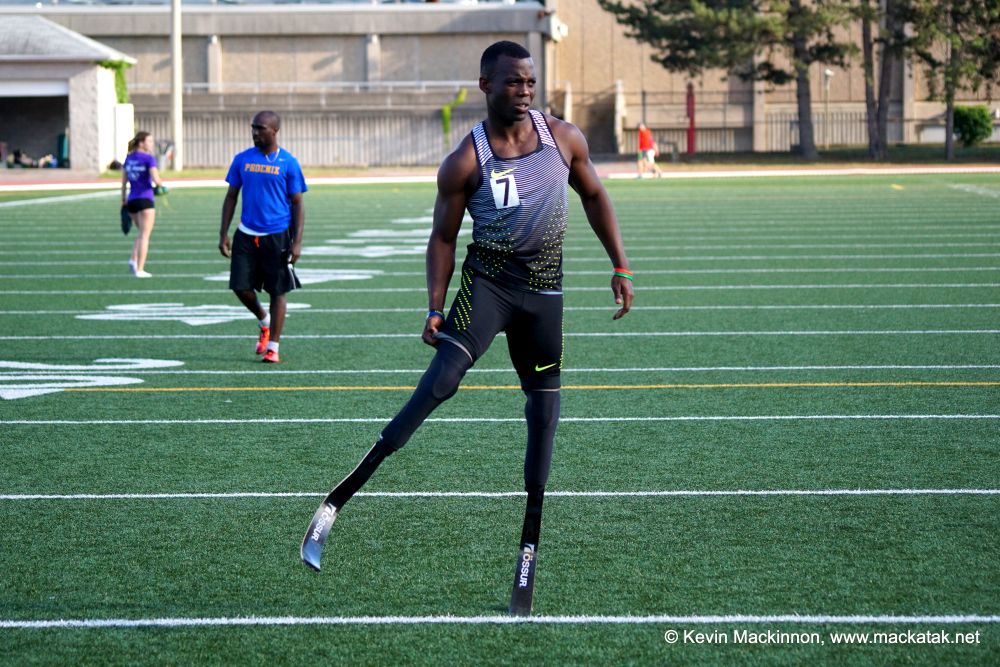CAS upholds prosthesis ban, jeopardizes double amputee’s Olympic dreams
The Court of Arbitration for Sport has said Blake Leeper cannot compete in the Olympics or any World Athletics events with his current prostheses
 Photo by:
Kevin Mackinnon
Photo by:
Kevin Mackinnon
On Monday, the Court of Arbitration for Sport (CAS) announced its decision regarding American Paralympic medallist and double amputee Blake Leeper and his appeal against a World Athletics (WA) rule that prevents him from competing in his current set of prostheses in able-bodied races. Leeper had hoped to qualify for the Tokyo Olympics in the 400m, but WA denied his application to compete in any sanctioned events after ruling that the Paralympian’s prostheses would give him an unfair advantage over his competitors. While the CAS ruled against Leeper and his current prostheses, the court only partially upheld the appeal, declaring that a WA Technical Rule regarding para-athletes is “unlawful and invalid” to a certain extent.
CAS partially upholds the appeal of Blake Leeper
⬇️⬇️⬇️https://t.co/UXRoSsg0PV pic.twitter.com/vAxGN1LmNj
— TAS-CAS Observatory & Rapporteur (@ArbitralduSport) October 26, 2020
Leeper was born without legs below his knees, and in February, he submitted an application to compete in WA-sanctioned events in a bid to qualify for Tokyo 2020. WA denied the application, citing IAAF Rule 144.3(d), which prohibits the use of “any mechanical aid, unless the athlete can establish on the balance of probabilities that the use of an aid would not provide him with an overall competitive advantage over an athlete not using such aid.”
WA determined that “Leeper’s prostheses give him an artificial competitive advantage over athletes not using such prostheses,” specifically because they make him “15 cm taller than he would be if he had biological legs.” The WA report notes that Leeper would be 5 feet 9 inches tall with biological legs, but with his current prostheses, he stands at 6 feet 8 inches, and this extra height gives him “an artificial performance advantage” of “several seconds” over a 400m race.

Following WA’s denial of his application, Leeper filed an appeal with the CAS in late February, stating that the rule was “invalid and unenforceable as applied to him; and that he was therefore eligible to qualify for and compete using his current prostheses, with his results treated no differently to those of able-bodied athletes.”
Before Leeper’s appeal, the WA rule put the burden of proof on the individual, meaning an athlete had to prove that their mechanical aid didn’t give them an unfair advantage over other athletes. The CAS has determined that this is unlawful and invalid, and the burden of proof now rests with WA. However, the CAS noted that WA “had a legitimate objective in pursuing the rule,” which is in place to “permit disabled athletes to compete against able-bodied athletes while using mechanical aids” while preventing disabled athletes from using mechanical aids that “do more than compensate for the effect of their disability.”
https://www.instagram.com/p/B8zPkCmJ18m/?utm_source=ig_web_copy_link
In Leeper’s specific case, the CAS sided with WA, deciding that, based on the findings that WA presented regarding Leeper’s exaggerated height in his mechanical aid, he cannot use his current prostheses to compete at WA-sanctioned events.
Leeper’s legal team has reportedly said the ruling is based on a “racist Paralympic rule” that pertains to an athlete’s Maximum Allowable Standing Height. WA notes that this rule “is based on the best available evidence of body dimensions” and that it has been in place for “several years … without issue.” The WA team continues, writing that they are “aware of no proof that African-American athletes have significantly different bodily dimensions (proportionality), and certainly not to the extent identified in this case. The 15 cm disparity found in Mr. Leeper’s case between his prosthetic leg length and his natural leg length is not due to racial differences in body dimensions.”
The ruling from WA and the CAS does not mean Leeper is banned from WA competitions forever, but until he makes a change with his prostheses, he will have to stick to para events.
To read the full CAS report, click here.


